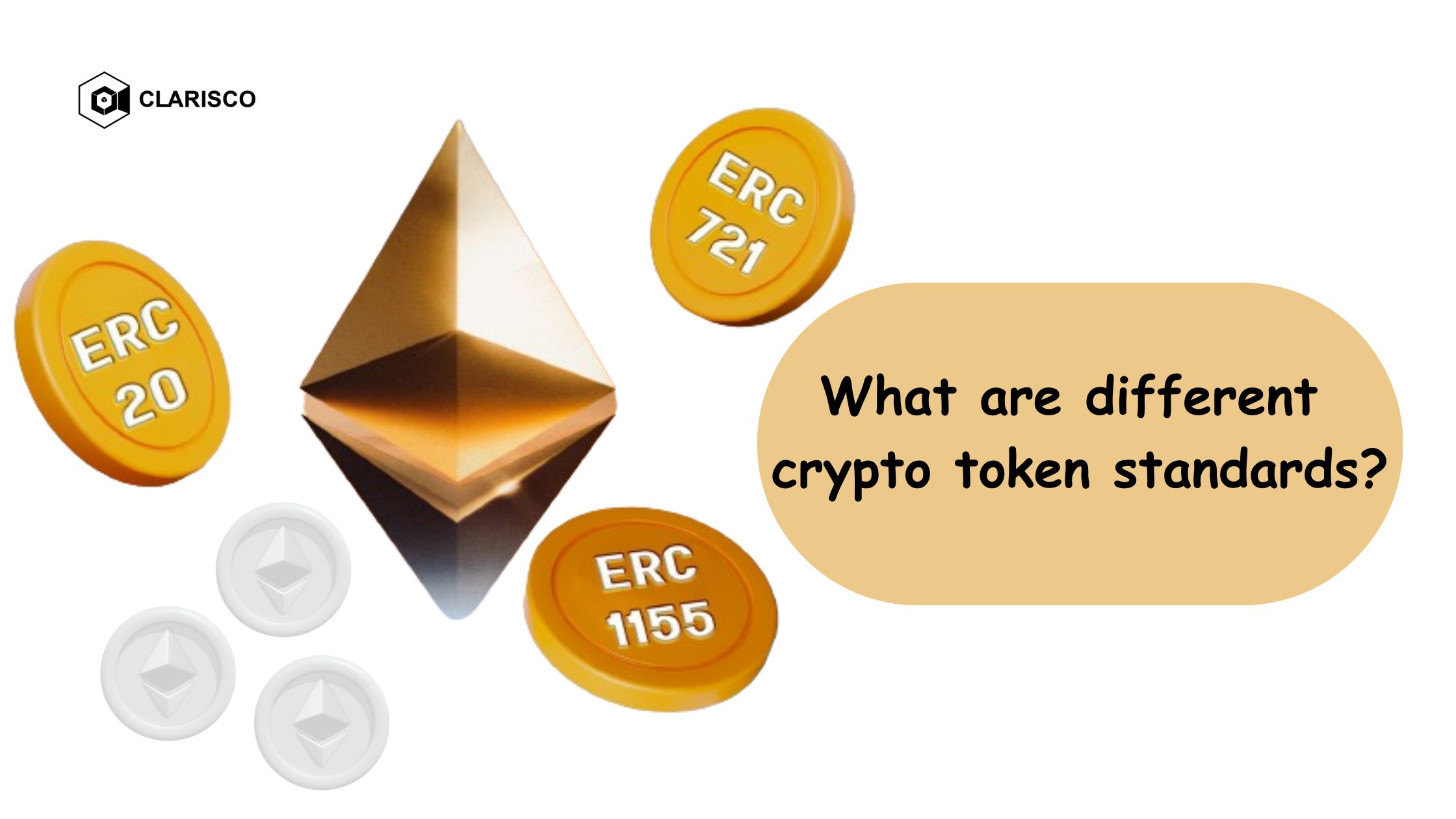What are different crypto token standards?
 Elsa Marie
Elsa Marie
Introduction:
In the realm of blockchain technology, crypto tokens play a vital role. They act as digital units of value or represent ownership of real-world assets. But with various blockchains and functionalities, how do these tokens interact seamlessly? This is where token standards come in.
Think of token standards as a common language for tokens. They define a set of rules and guidelines that crypto token development companies must adhere to when creating tokens on a specific blockchain. This ensures compatibility between tokens, smart contracts (programs that govern token functionalities), and dApps (decentralized applications) built on that blockchain.
Let's delve into some of the most common token standards on the Ethereum blockchain, the forerunner in smart contract technology:
ERC-20: This is the most widely used standard for creating fungible tokens. Fungible tokens, like money, are interchangeable. Each ERC-20 token is identical to another, making them ideal for utility tokens (used for accessing services) or security tokens (representing ownership in a company).
ERC-721: In contrast to ERC-20, ERC-721 caters to non-fungible tokens (NFTs). NFTs are unique digital assets, like collectibles or artwork. Each ERC-721 token has unique properties, making them irreplaceable and perfect for representing digital ownership.
ERC-1155: This standard offers more flexibility, allowing the creation of both fungible and non-fungible tokens within the same smart contract. It's particularly useful for scenarios involving in-game assets or tokenized physical goods with varying rarities.
ERC-777: Building upon ERC-20, ERC-777 introduces additional features like operator approval and the ability to send tokens directly to smart contracts. This enhances security and streamlines interactions within the decentralized finance (DeFi) space.
Beyond Ethereum, other blockchains have their own token standards. For instance, Binance Smart Chain uses BEP-20 for fungible tokens, similar to ERC-20. Similarly, Solana has the SPL standard for fungible and non-fungible tokens.
Token standards are the backbone of a thriving blockchain ecosystem. They ensure smooth communication between tokens, smart contracts, and dApps, fostering innovation and development within the cryptocurrency and blockchain space.
Conclusion:
Token standards are the unsung heroes of the blockchain world. They provide the essential structure that allows tokens, smart contracts, and dApps to interact seamlessly. As the blockchain ecosystem continues to evolve, new token standards will likely emerge to address novel use cases and functionalities. Numerous companies are offering Ethereum token development services for those interested in creating their own tokens. These services can help you design and deploy your token on the Ethereum blockchain, ensuring it adheres to the relevant standard (ERC-20, ERC-721, etc.) and integrates smoothly with the wider Ethereum ecosystem.
Subscribe to my newsletter
Read articles from Elsa Marie directly inside your inbox. Subscribe to the newsletter, and don't miss out.
Written by
